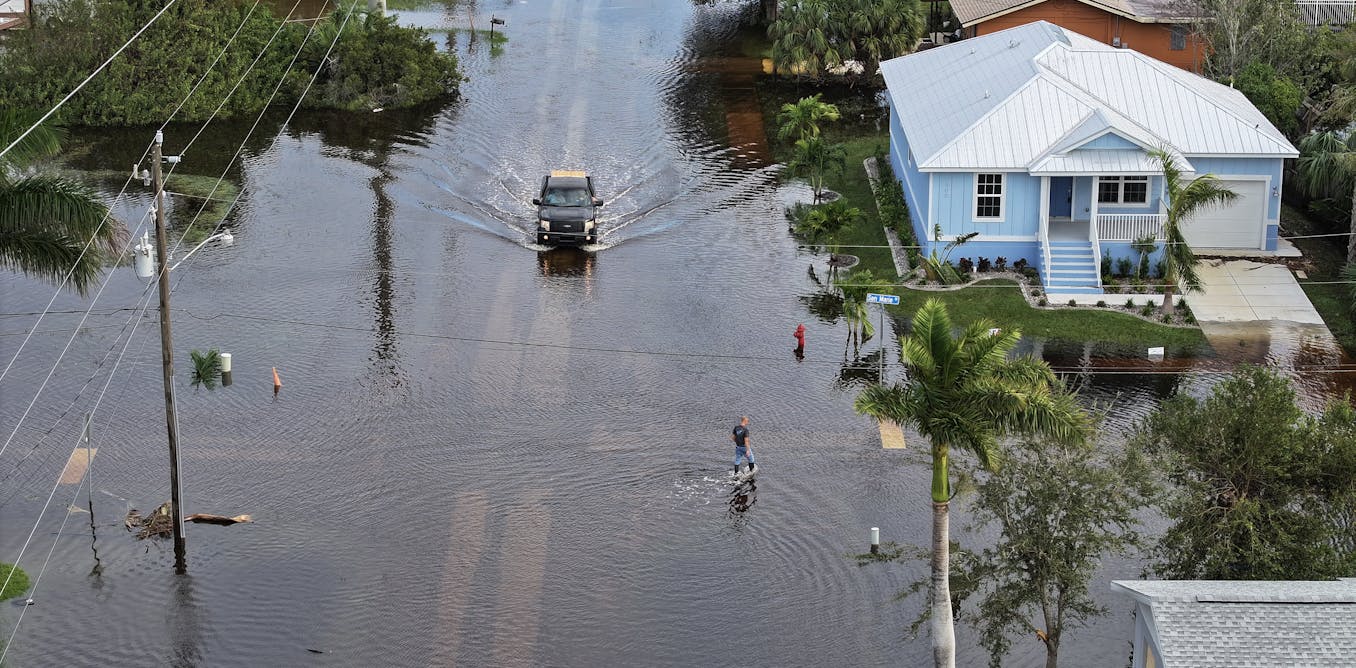For new parents struggling with challenges such as breastfeeding and sleep deprivation, social media can be a great place to turn for advice. Digital platforms such as Facebook and Reddit host a range of groups that offer peer support and information.
Research shows connecting with other new parents can also foster a sense of community.
But there is growing concern businesses and influencers may also be using groups to push certain products and services.
In recent media reports, new parents have described feeling misled, after discovering the parent support group they thought was founded by a local mum was run by a media company owner and monetised through advertising.
So how can you identify when commercial interests are involved?
Here’s what to look out for to get the best from online parenting groups.
How can social media groups help?
In Australia, closed Facebook groups are a popular choice for parents accessing free peer support and information online. Closed groups are not public – they are run by administrators and moderators who can approve requests from other users for membership.
These groups are often started by not-for-profit organisations or parents themselves and have a number of benefits. Parents can connect with others, share experiences, seek advice and learn about different parenting approaches.
This can be particularly useful for people in remote and regional areas who may find it harder to access in-person support, and was essential during COVID lockdowns.
My research with colleagues has revealed the important role these groups can play.
In several studies we have looked at how parents use closed Facebook groups facilitated by the Australian Breastfeeding Association.
Over four weeks, we tracked the frequency and type of posts, the number and nature of the comments, and how parents felt about the support they received in these groups.
We found they provided information and emotional support group members could trust because they were facilitated by trained peer breastfeeding counsellors and other mothers.
This is significant because we know lack of breastfeeding support is often cited by mothers as one of the key reasons for premature weaning.
The group administrators played an important role responding to queries and making sure discussions stuck to the association’s code of ethics.
This code encourages mutual respect, sharing evidence-based information, and co-operation with health professionals. It also discourages the promotion of products and services.
Our research has shown the value of accessing trusted information and sharing experiences in a supportive community, where human connection is centred rather than products.
AnnaStills/Shutterstock
What’s the problem with monetising groups?
When access to parenting support and information is limited or biased, it can have serious consequences for those already facing challenges with parenting.
Let’s imagine an example. A group member is posting about birth trauma. But in responding, other members aren’t allowed to mention local service providers – for example, counselling – because they are not paid sponsors of the group.
This means advice is skewed towards organisations that can afford to pay for sponsorship and be mentioned.
As a result, new parents might not find out about the range of not-for-profit support groups that can help them with important challenges like breastfeeding and postpartum mental health.
This deceptive practice can erode trust within online communities. Users may perceive the platform as prioritising profit over the wellbeing of its members, which can reduce engagement and the overall quality of the group.
It may also leave new parents – who are particularly vulnerable to unethical marketing – open to exploitation.
What can we do?
Protecting parents from commercialised social media groups requires a multifaceted approach.
First, regulation is crucial, such as ensuring that social media groups are transparent about any commercial interests, and commercial entities are marketing their products ethically.
Second, we need public awareness campaigns to educate parents about the potential biases and risks associated with commercialised platforms. This includes fostering media literacy skills to critically evaluate information and identify reliable sources.
Finally, collaboration between policymakers, researchers, industry representatives, and parent advocacy groups is vital to develop effective solutions that address these challenges.

Ground Picture/Shutterstock
What should I look out for?
To protect yourself from misinformation in online parenting groups, it’s crucial to be critical of information sources. It’s a good idea to:
-
watch out for warning signs like excessive product promotion, lack of transparency about group affiliations, and a primary focus on selling. For example, when joining a closed Facebook group, read the page’s “about” section. If there is mention of advertising or sponsorship, this is a red flag
-
look at who the “admins” are. If listed admins include business names that can also be a cause for concern
-
check out the list of “members”. If the group accepts “pages” (which are often run by businesses) in addition to individual people, this is also a sign that commercial interests are at play.
-
look for groups focused on sharing experiences, offering support, and building authentic relationships
-
observe how members interact and how heavily the groups are moderated and censored, and seek out groups with diverse perspectives
-
when you join the group, carefully consider the group rules that you are agreeing to and what they say about mentioning support services, and the promotion of commercial products. Will this mean that you may be censored or receive censored information?
Always cross-reference information with reputable sources like government organisations (such as the Raising Children Network or Australian Breastfeeding Association) and compare information from multiple sources to get a balanced perspective.
Finally, trust your instincts. If a group feels “off” or overly promotional, don’t hesitate to leave.

The post “Social media groups can offer support to new parents. Here’s how to tell if there’s marketing involved” by Nicole Bridges, Senior Lecturer in Public Relations and Director of Academic Program – Communication, Creative Industries, Screen Media, Western Sydney University was published on 02/11/2025 by theconversation.com





































Leave a Reply